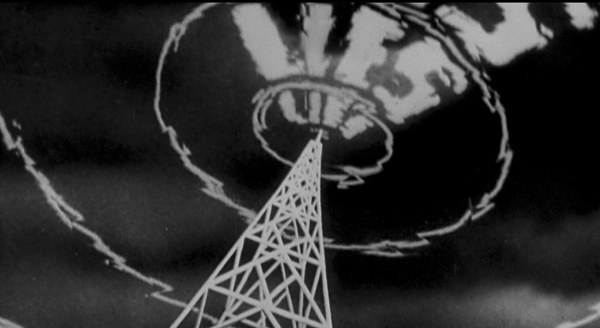
Archival footage from GARBO: THE SPY (Photo: First Run Features)
Produced & Directed by Edmon Roch
Written by Roch, Isaki Lacuesta & María Hervera
Released by First Run Features
English, Spanish, Catalan & German with English subtitles
Spain. 87 min. Not rated
Greta Garbo, Leslie Howard, George C. Scott, and George Sanders: this thriller-cum-documentary offers the biggest cast of stars this year. The liberal excerpts from Mata Hari, The Longest Day, and Patton immerse the viewer into the era of international espionage of more than a half-century ago. Director Edmon Roch knows his audience. Any World War II history buff should feel at home.
Garbo: The Spy delivers the goods, spinning one of the best real-life spy yarns of the war: why the Germans in 1944 thought the D-Day landing in Normandy was only a diversionary tactic from another impending and larger Allied invasion. The plan, code-named Operation Fortitude, was aided by a mystery man who, in 1941, appeared out of nowhere at the German embassy in Madrid offering his services to the Axis powers. Technically neutral during the war, Spain was a hornet’s nest of espionage and counterespionage. For years, the Spaniard reported to his handlers from Lisbon, lying all the while that he was holed up in London. But it was also in Lisbon where he entered the British Embassy (knowing no English) and volunteered his services. He was repeatedly rejected until British intelligence noticed that he was sending bogus information (some with glaring mistakes) to Germany, yet he was held in high esteem by the German High Command.
Though his motives were not clear-cut, the British operatives assigned him the alias Garbo, in honor of the movie star and for his acting skill in spoon-feeding the Third Reich information it wanted to hear, culled from Garbo’s network of 27 sub-agents infiltrating Britain. All were fabrications of his precise imagination. All the while, his services were paid for by the Nazi regime and ended up financing British Intelligence operations. Yet no one in British intelligence services knew who he was, and for more than 40 years after the war, the identity of the bourgeois Casanova, as he’s called here, was unknown. With contagious enthusiasm, the talking-head historians (and one former spy for the United States during this period, the exotically named Countess of Romanones Aline Griffith) tantalizingly unmask the double-agent’s identity.
Allegedly, Garbo inspired Grahame Greene’s 1958 novel Our Man in Havana, which became a 1959 film with Alec Guinness as the Garbo-like Wormold, seen among the cavalcade of clips and a trove of archive footage. (Incongruous but oddly affecting, the eclectic soundtrack includes the ambient rock by Brain Eno and Sparklehorse.) Let’s hope that this briskly paced and wildly entertaining film sets a trend of other nonfiction fare of the same ilk. There’s plenty of subject matter to choose from: Operation Mincemeat, the Allies’ macabre diversionary trick to deflect the Germans’ attention from the invasion of Sicily, or Operation Barclay, the duping of Germany on the location of the Mediterranean landing (Garbo played a role in both). If Garbo: The Spy graces PBS or the History Channel—and it should—those networks will suddenly become hip.
















Leave A Comment